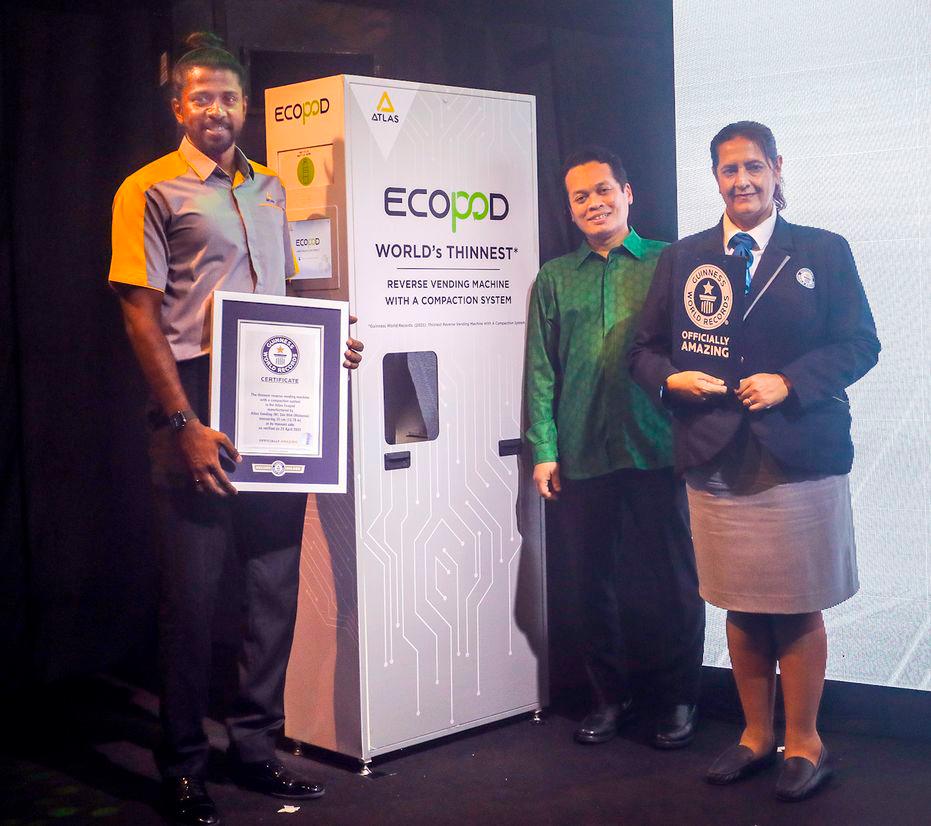PUTRAJAYA: Malaysia has officially entered the record books with the unveiling of the Atlas Ecopod, now certified as the world’s thinnest reverse vending machine.
The Atlas Ecopod is specifically designed to collect and recycle polyethylene terephthalate (PET) bottles and aluminum cans.
Natural Resources and Environmental Sustainability Minister Nik Nazmi Nik Ahmad said its development aligns with the Malaysia Plastics Sustainability Roadmap 2021-2030 and the United Nations Sustainable Development Goals.
Speaking at the launch and Guinness World Records certificate presentation today, Nik Nazmi highlighted the machine’s role in advancing the country’s environmental targets, including reducing greenhouse gas emissions intensity by 45% by 2030 and achieving net-zero emissions by 2050.
The Ecopod, a locally designed and built innovation, was developed by Atlas Vending, a subsidiary of the Etika Group of Companies.
“Malaysia still generates over one million tonnes of plastic waste annually. This presents a major challenge not only in urban areas but also in rural communities, affecting both public health and economic stability,” he said.
Emphasising the need for more efficient recycling infrastructure, Nik Nazmi added that the Ecopod showcases how plastic waste can be compacted and processed effectively—reducing dependence on manual labour and lowering operational costs.
He also said while steps have been taken to reduce single-use plastics, Malaysia still lacks clear regulations for dealing with plastics that can’t be avoided.
“Last week in Geneva, I joined talks on the Global Plastic Treaty. We’re pushing for a fair and forward-looking deal,” he said.
“But at home, we need stronger laws to support recycling of unavoidable plastic waste.”
As part of a nationwide sustainability initiative, the Ecopad will see its first 100 units installed in high-traffic areas across Malaysia, encouraging the public to recycle used Etika beverage containers.
The Ecopod is designed for scalability and easy use in urban areas. Its compact size allows it to be installed in tight spaces such as public transport stations, building lobbies, and schools—making recycling more accessible for all Malaysians.
Each machine is equipped with a barcode scanner that verifies brands and rewards users for recycling Etika bottles and cans.
Etika Group chief executive officer Santharuban Thurai Sundaram said the machine is a 100% Malaysian-made solution that blends sustainability with innovative technology.
“This milestone demonstrates Malaysia’s capability to lead in the global green economy,” he said.
“It transforms recycling into an engaging experience, with AI-enabled systems and a rewarding mechanism that encourages eco-conscious behaviour among everyday users,“ he added.









